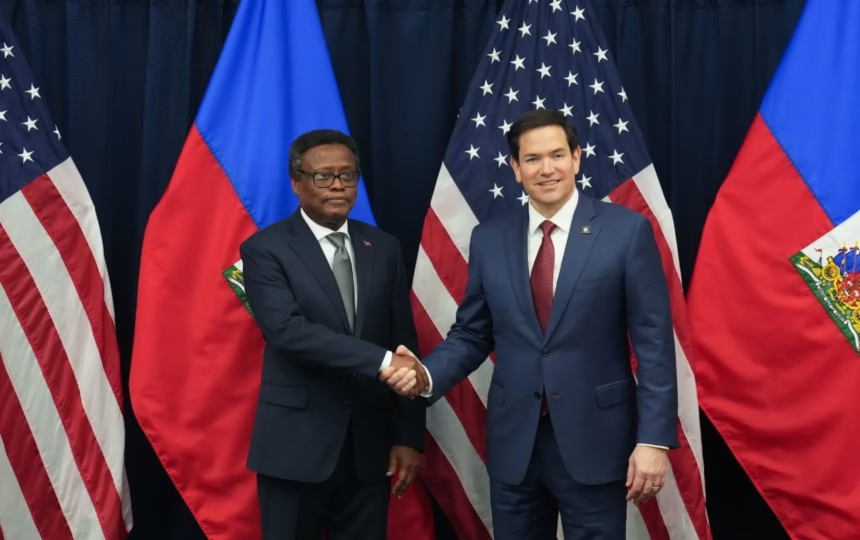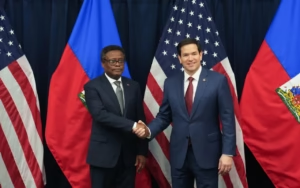The U.S. government has sanctioned economist Fritz Alphonse Jean, an influential member of Haiti’s Presidential Transitional Council, formally accusing him of “supporting gangs and other criminal organizations,” according to the Associated Press. The sanction comes less than three months before the Council’s mandate expires on February 7, 2026, and risks exacerbating the country’s political instability.
In a statement released Tuesday, the State Department specified that Mr. Jean was also accused of “obstructing Haiti’s fight against terrorist gangs.” These criminal groups, which control nearly 90% of the capital Port-au-Prince and vast areas of the country’s center, engage in extortion, territorial clashes, and use military-grade weapons.
The measure, taken under section 212(a)(3)(C) of the Immigration and Nationality Act, specifically targets individuals whose activities are likely to have “particularly serious adverse foreign policy consequences” for the United States. The State Department specified it would revoke “all currently valid visas held by this individual.”
This action is part of a policy announced in October 2022, which targets individuals—as well as their family members—providing financial or material support to gangs and criminal organizations in Haiti.
Jean Denies Allegations, Claims Diplomatic Threats
Contacted by the Associated Press, Fritz Alphonse Jean categorically rejected these accusations. He revealed that Council members had received explicit threats from American and Canadian diplomats. “As soon as we began examining the possibility of changing the head of government, Council members received threats of visa cancellation and other sanctions,” he stated.
According to Mr. Jean, foreign envoys allegedly clearly stipulated that “if we don’t stop our actions, we will be exposed to sanctions.” The presidential councilor claims these pressures aim to prevent any deep reform: “We remain firm in the fight against corruption, the stranglehold of a few individuals over the state, and operators involved in drug trafficking.”
In its November 24 statement, the State Department reaffirmed U.S. commitment to “stability in Haiti” and called for “concrete progress toward free and fair elections.” An unequivocal message was sent: “The Trump administration will encourage accountability for those who continue to destabilize Haiti and our region.”
Political Tensions Within the Transitional Council
This announcement comes amid strong tensions within the Presidential Transitional Council (CPT), less than three months before its mandate expires on February 7, 2026. Political negotiations are underway to attempt to replace Prime Minister Alix Didier Fils-Aimé and carry out a cabinet reshuffle, an initiative led by three CPT members who are struggling to find a majority.
Furthermore, diplomats stationed in Haiti have reportedly expressed their “concerns for the stability of the transition” to CPT members in case of major changes so close to the February 7 deadline, according to the Haitian newspaper Le Nouvelliste.
Parallel to internal negotiations within the Presidential Transitional Council, other political groups and civil society organizations are also conducting discussions to propose an alternative governance structure for the post-February 7 period.
Sanctions Effectiveness in Question
This U.S. sanction echoes a warning issued last week on social media platform X by Deputy Secretary of State Christopher Landau, who had cautioned about possible sanctions targeting “anyone involved in destabilizing actions.”
While Washington continues to tighten the screws, questions persist about the actual effectiveness of these measures. Despite a growing list of sanctioned political officials, businesspeople, and gang leaders, Haiti’s security situation continues to deteriorate, plunging the population into an unprecedented humanitarian crisis. This new sanction demonstrates constant international pressure, but it also raises questions about its capacity to shift the dynamics of a profound crisis, as the country remains mired in violence and political instability.








